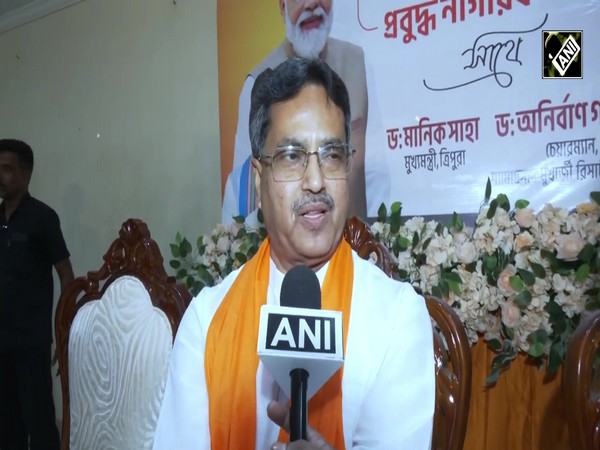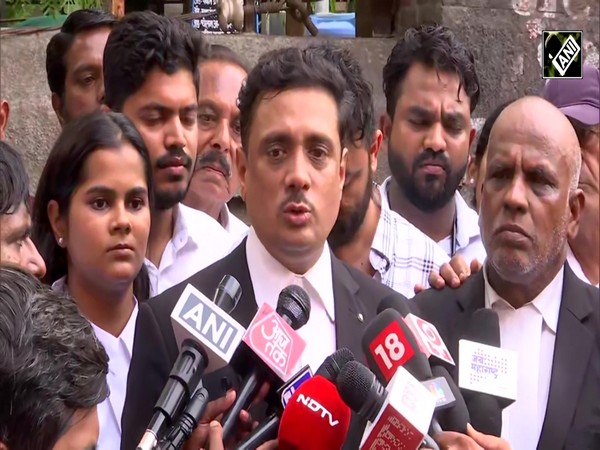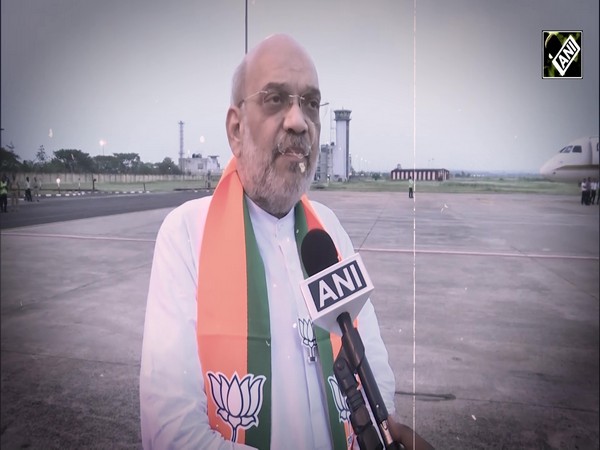Delhi: 76-year-old donor's liver breathes new life into man battling Cirrhosis
May 13, 2024

By Shalini Bhardwaj
New Delhi [India], May 13 : In a remarkable demonstration of courage and compassion by the family of a 76-year-old road accident victim, who succumbed to a brain haemorrhage, has bestowed the gift of life upon a 30-year-old man suffering from liver cirrhosis.
The act was facilitated by the skilled medical team at Fortis Hospital Shalimar Bagh, Delhi, and stands as a testament to the profound impact of organ donation.
Dr Sonal Gupta, Director, and HOD Neurosurgery at Fortis Hospital Shalimar Bagh, recounted the harrowing circumstances that led to the organ donation.
"Despite the emergency intervention, the patient suffered brain haemorrhage due to the gravity of the head injury following the accident and multiple clots in the brain. Sadly, he could not be revived despite critical care interventions and ventilator support," Gupta said.
"We salute the deceased donor and deeply appreciate the generosity of his family in recognizing the value of organ donation and giving the gift of life to those in need. The seamless collaboration between our dedicated doctors and the police made this life-saving donation possible. We hope this heartwarming example inspires more people to register for organ donation and make a difference," she added.
According to the doctors, the road accident victim after the incident was rushed to Fortis Shalimar Bagh hospital with severe head injury and oral bleeding in the first week of May. On admission, the patient was conscious, but within, half an hour he lost consciousness due to a rapidly enlarging clot in the brain. An urgent CT scan of the head revealed a large clot (Subdural Hematoma) in the brain.
An emergency brain surgery was conducted to remove the clot and bone on the right side of the skull to create extra space for the swollen injured brain. After the surgery, he was placed in the ICU on a ventilator, where a multi-disciplinary team of doctors provided intensive care. Despite vigorous efforts and medications to reduce brain swelling, the victim unfortunately succumbed to his injuries.
Amidst profound sorrow and grief, the family of the deceased displayed courage and generosity by consenting to donate their loved one's liver to a 30-year-old man suffering from liver cirrhosis. The entire process of multi-organ retrieval surgery took around 2 hours and 35 minutes. A green corridor to transport the liver was created from Fortis Shalimar Bagh to Max Hospital, Saket covering a distance of 28.4 km in just 44 minutes.
Deepak Narang, Facility Director at Fortis Hospital Shalimar Bagh, expressed gratitude towards the donor's family and emphasized the importance of organ donation in saving lives.
"We remain indebted to the family for their magnanimity amid grief. The clockwork precision of all internal and external medical teams made this donation a reality. This should encourage more people to come forward and get themselves registered for organ donation to save more lives," Narang said.
According to NOTTO (National Organ and Tissue Transplant Organization), once a patient is declared brain dead, the hospital can counsel the family for organ donation. NOTTO protocol and guidelines stipulate that the treating hospital provide all details and obtain necessary clearances for a possible organ donation. In this case, the No Objection Certificate in a Medico-Legal Case (NOC-MLC) was obtained and a request for a green corridor was made.
It is estimated that almost 5 lakh Indians face organ failure every year and only 2-3 percent receive a life-saving transplant. As per data available with NOTTO, in 2022, 11 cadaver donations have been made with the successful retrieval of 30 organs in Delhi.
Every year, hundreds of people die in India, waiting for an organ transplant. Due to a lack of awareness and misconceptions, there is a shortage of organ donors, and with each passing year, the gap between the number of organs donated and the number of people waiting for transplants is growing wider. Timely cadaveric organ donation can save many lives and more people would come forth and pledge their organs if they receive more information and are educated on the benefits of organ donation.


















